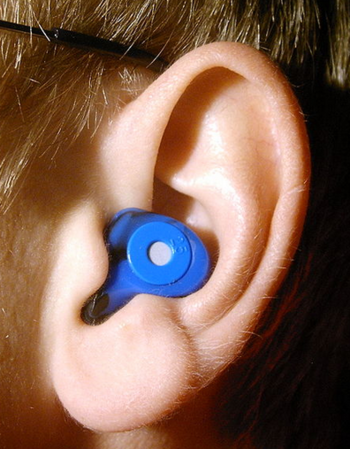It is a challenge to become an active listener until you understand how years of denial, manipulating others, chemical use and other negative consequences have become the foundation of your distorted listening. You have become deaf to the reality of what you hear. Your addiction has become a filter that prevents you from hearing the truth. People talk about what you have become. You do not make sense when you talk so nobody listens to you.

Listening becomes a threat and you convince yourself that nobody will understand you because they will not listen to your version of your life as an addict or alcoholic. When you are deaf, to the reality of addiction, the delusions and paranoid ideas you create in you head become the reality that is your life. You become the delusions and distortion because you
cannot hear what people say about what addiction has done to you.
And they bring unto him one that was deaf, and had an impediment in his speech; and they beseech him to put his hand upon him. And he took him aside from the multitude, and put his fingers into his ears, and he spit, and touched his tongue; And looking up to heaven, he sighed, and saith unto him, Ephphatha, that is, Be opened.And straightway his ears were opened, and the string of his tongue was loosed, and he spake plain.And he charged them that they should tell no man: but the more he charged them, so much the more a great deal they published it; And were beyond measure astonished, saying, He hath done all things well: he maketh both the deaf to hear, and the dumb to speak. Mark 7:32-37 KJV
This Bible story says that Jesus restored hearing to a deaf man. The verse looks very straightforward a first glance, however, if you take a closer look, more is revealed. You realize that you need the hand of God to open your eyes to the fact that you cannot hear or speak.
The fifth step is one of the early points in recovery where you listen to yourself talk about the misery and destruction that happened to you and others because of your addiction. The list is a fearless and moral inventory. In order for you to hear this admission of the wrongs that are a direct consequence of addiction, you have to be honest when you talk and be willing to listen to the feedback.
One of the most familiar terms in the circle of recovery tells people to take the cotton out of their ears and put it in their mouth. How clever this phrase is to tell a person to let God and the program help you to listen to the stories of others so that you can hear the reality of your own consequences.
Active listening is a process, not an experience. There are people who come to meetings that have been practicing the principles of recovery for many years and cannot hear a word that people are saying because they have all of the answers and only listen to themselves.
Sometimes it is hard to listen because you had to spend most of your life responding to anything a person said just so you would not get hurt. Listening is a two way experience. You must be able to listen so you will know what is said, interpret the information then respond to what was said.
You can help get better at listening by doing a few things. Ask for feedback before you answer. This can help you make sure you are hearing what someone is saying. Talk about your experience in retrospect when necessary. It is less painful to tell someone that you were difficult to live with instead of hearing that nobody wanted to be around you. Most important remember that one day at a time things get better overall even when it seem like they are not changing at all.
